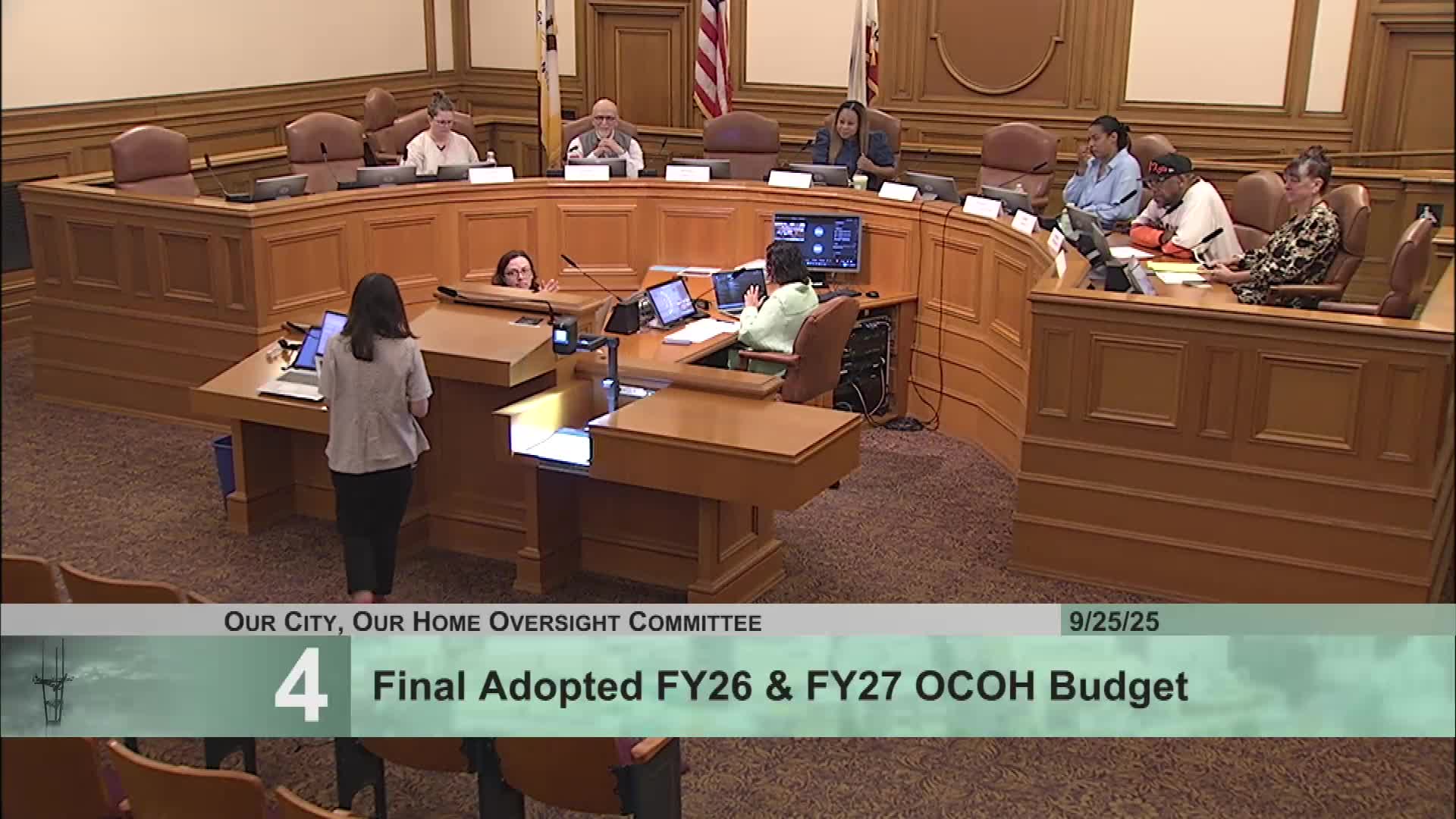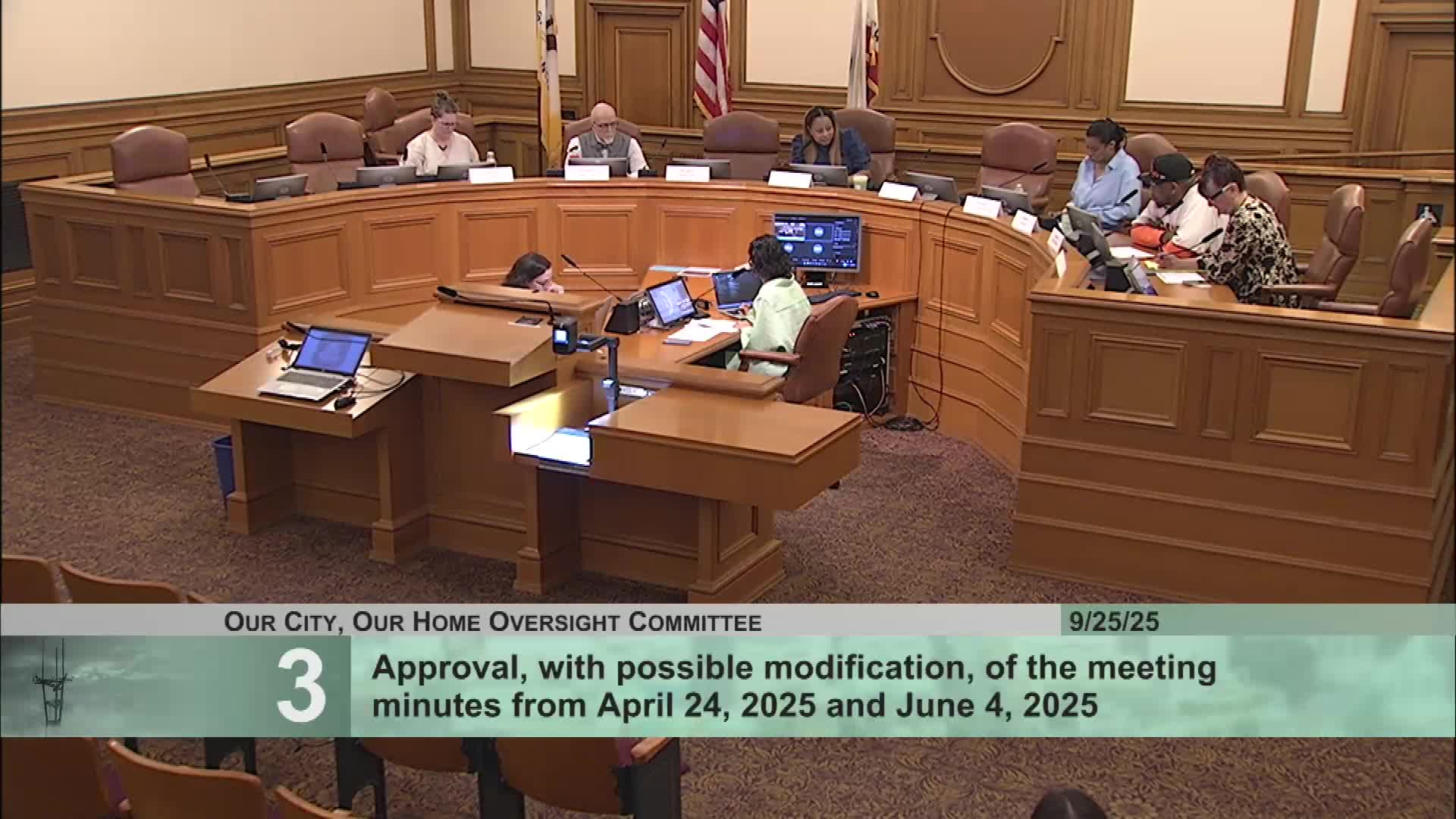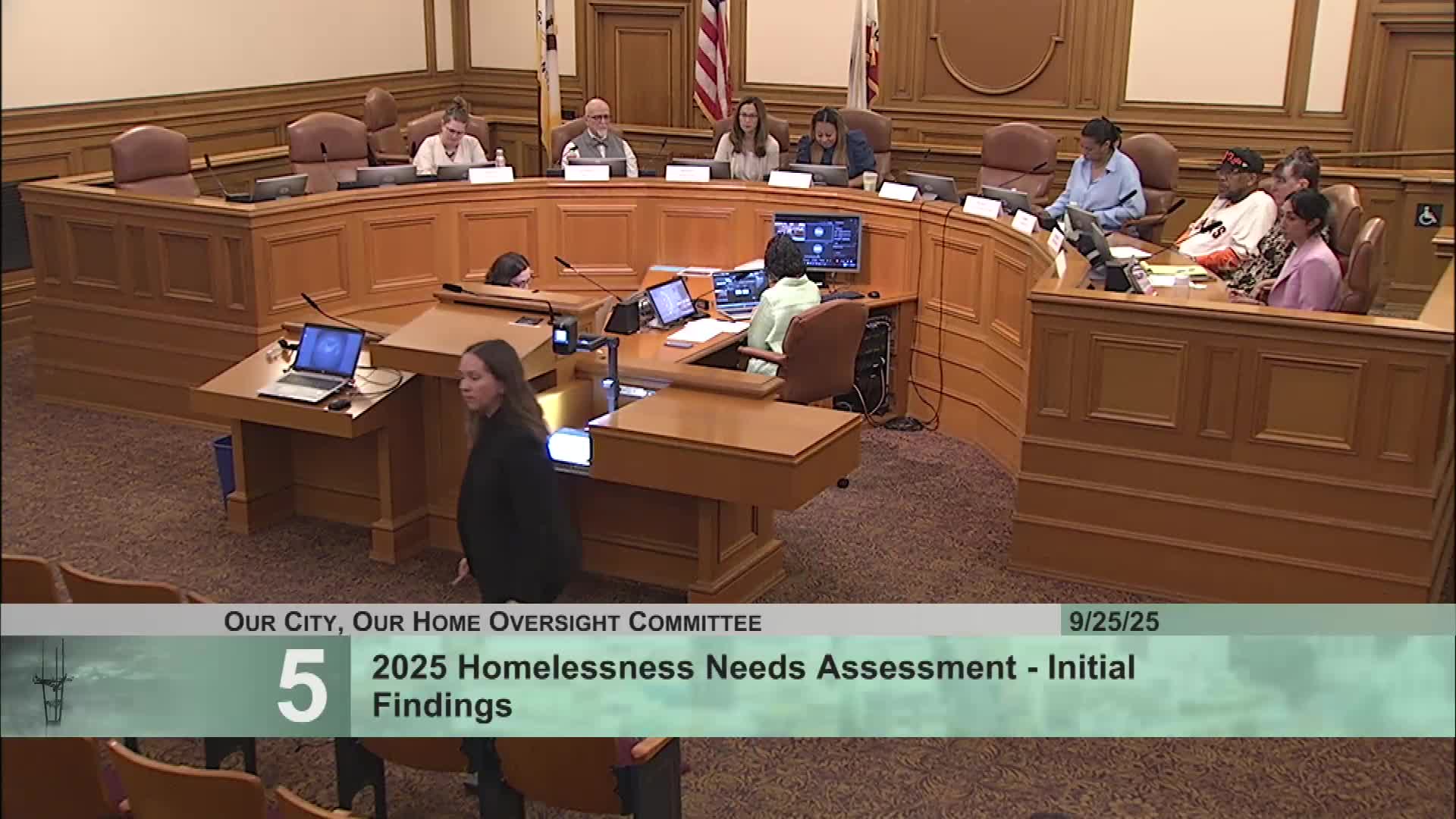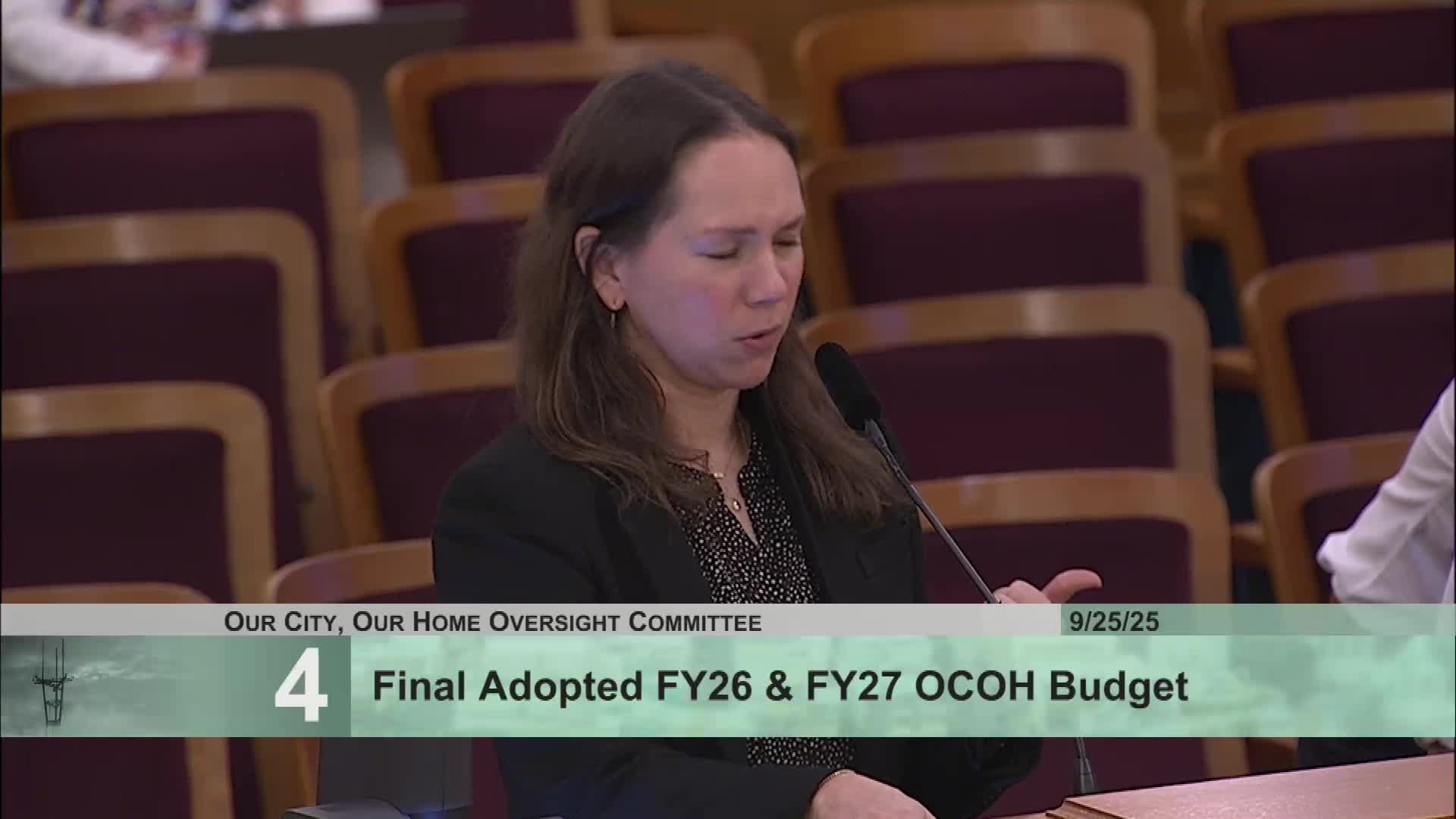Article not found
This article is no longer available. But don't worry—we've gathered other articles that discuss the same topic.

Oversight committee reviews final OCO spending plan; members press for timelines and clarity on RV-focused rapid rehousing

Oversight committee approves April 24 and June 4 minutes

Controller’s draft needs assessment: inflow outpaces exits, single adults show high behavioral-health needs

